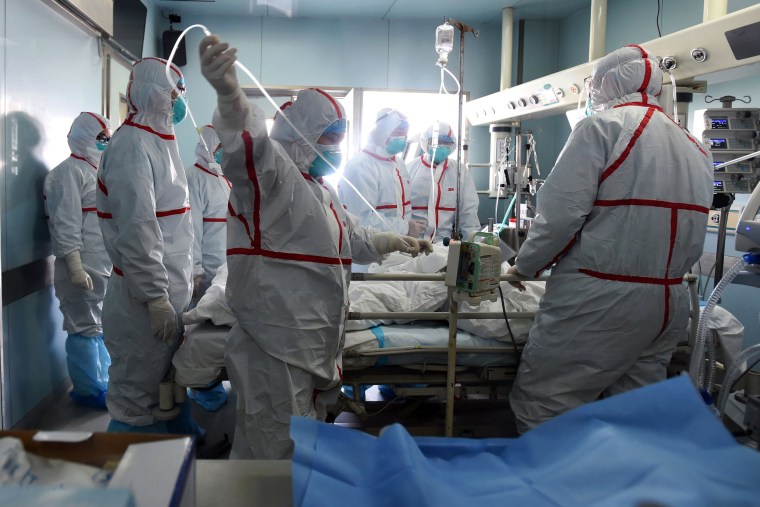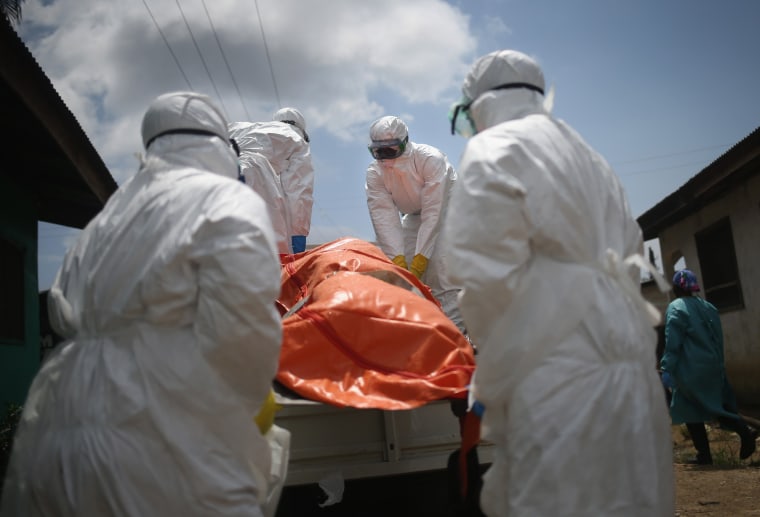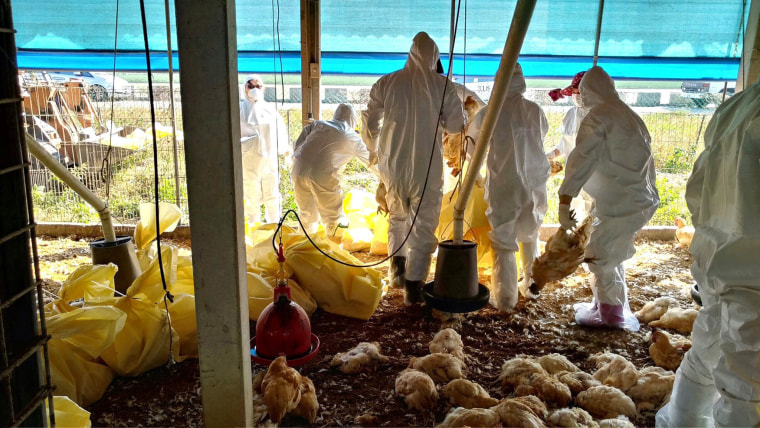Bird flu has started killing more people in China, and no one's sure why. Zika virus is set to come back with a vengeance as the weather warms up and mosquitoes get hungry. Yellow fever is spreading in Brazil, and antibiotic-resistant bacteria are evolving faster than doctors can keep up with them.
And the new health care replacement bill released Monday night by Republican leaders in Congress would slash a billion-dollar prevention fund designed to help protect against those and other threats.
The Prevention and Public Health Fund accounts for 12 percent of the budget for the Centers for Disease Control and Prevention. The 2010 Affordable Care Act set it up specifically to try to lower health costs by preventing diseases before they happen.

The CDC uses it to help states deliver vaccines, watch for infectious diseases, keep an eye out for lead in water, promote breastfeeding in hospitals, prevent suicide and watch out for hospital-associated infections. It totals $931 million for 2017.
Related: CDC Issues Yellow Fever Alert for Brazil
"It really is a core activity," said Dr. Anne Schuchat, the CDC's acting director.
Not only would the proposed American Health Care Act explicitly cut the fund, but President Donald Trump has said his 2018 budget would chop domestic spending and funnel more cash to the Defense Department.
It worries federal, state and local health officials, who have seen their budgets steadily cut over the past 15 years.
Related: CDC Concerned About Spread of H7N9 Bird Flu
"These funds are used to prevent diseases such as hypertension, cancer and diabetes, which are drivers of the major causes of death in the United States," said Dr. Leana Wen, Baltimore's health commissioner.
"They also help ensure that our nation is prepared against emerging threats such as bioterrorism and Ebola and other infectious diseases. Cutting these funds will hurt patients' health in the short term and compromise national security in the long term."
"When you have a burning airplane on the runway, that's not the time to start the discussion about whether you need to buy a firetruck."
Ebola came out of the blue, causing an epidemic across West Africa in 2014 and 2015 that infected 28,000 people, killed more than 11,000 of them and frightened Americans when a patient turned up in Dallas, died and infected two of his nurses, who survived.
Related: Nevada Woman Dies of Near-Ultimate Superbug
Trump raised eyebrows among public health officials in 2014 when he used Twitter to urge measures that would not help, such as blocking the return of infected doctors and nurses. Eight Americans, including seven health care workers, came back infected with Ebola. All were treated successfully, and none infected anyone else.
"The U.S. cannot allow EBOLA infected people back. People that go to far away places to help out are great-but must suffer the consequences!" he tweeted in 2014.
Schuchat is sanguine about now working for Trump, and she is understanding about some of the reactions. "Ebola raised a lot of fears. It is the epitome of scary diseases. It's understandable that emotions are high," she told NBC News.
She hopes she can calmly explain the issues to Congress and win the needed funding.
"These emerging threats are not limited within a county, city or state," she said.
Schuchat and other top U.S. health officials briefed congressional staff Tuesday on the threat of antibiotic-resistant bacteria, saying they have reached a level never seen before.
"We don't have a lot of time," Schuchat said. "Resistance is a problem now, because it is a threat to modern medicine itself." Bugs are evolving into forms that cannot be treated with any drugs, and no new classes of drugs are on the horizon.
Related: Zika Virus Raises Birth Defect Rate 20 Times
The CDC, the National Institutes of Health and other government agencies had been hoping and pressing for more money to develop drugs, tests and vaccines and to look harder for where those germs might be lurking. "We really are in a different time. This is the moment for us to really invest," Schuchat said.
In fact, they had been pressing for an authorized fund that would let them move quickly against new diseases, outbreaks or other threats without having to go to Congress to ask for the money.

Now, instead, they are looking at cuts and a Congress controlled by the same Republican leadership that, worried about slush funds and wasteful spending, delayed funding to fight Zika for nine months. They finally cut the funding request nearly in half.
It's bad timing. Just last week, the CDC raised the alert level about H7N9 avian influenza, which has killed more than 460 people in China since October. It's showing signs of mutating and is now considered the No. 1 candidate to cause a pandemic of killer influenza.
"Influenza is the scariest of all bugs. These bird flu strains are beginning to change," Schuchat said.
In what perhaps was a sign of the times, the briefing on the superbug threat at the Capitol attracted only a handful of staffers and no questions from legislative staff.

On Wednesday, the Association of State and Territorial Health Officials, or ASTHO, will try. It's bringing state health officials to Washington to make the case not only for the prevention fund, but also for increased public health funding.
They know it will be an uphill battle.
Related: CDC Declares Texas Town a Zika Zone
"It's a tough sell," ASTHO Executive Director Michael Fraser said. "People know what it means to go to the doctor. They don't know what it means when public health agencies agencies keep you from getting bird flu or an E. coli."
They'll frame their message in terms they hope will get the attention of conservatives, using the language of national defense.
"Public health infrastructure doesn't have same appeal as a bridge that could be named after you."
"This is national security. Public health is protecting Americans," said Amanda Jezek of the Infectious Diseases Society of America.
Fraser also hopes to tap into Trump's campaign promises about rebuilding American infrastructure.
"People think about bridges and roads. ... We need similar attention to the public health infrastructure," he said. "We want to get the message out that public health is part of homeland security, part of public safety. It's not just a bunch of pamphlets and health fairs."
Related: White House Shifts Ebola Funds to Zika Fight
Dr. Jay Butler, Alaska's chief medical officer and president of the ASTHO, knows this is another tough sell.
"Public health infrastructure doesn't have same appeal as a bridge that could be named after you," he said.
Scary tactics might help, Fraser said.
"In terms of scaring the hell out of people, [we are] thinking about the spring and what we have to do around Zika, especially now that states are preparing for mosquito season," he said.
"When you have a burning airplane on the runway, that's not the time to start the discussion about whether you need to buy a firetruck."
